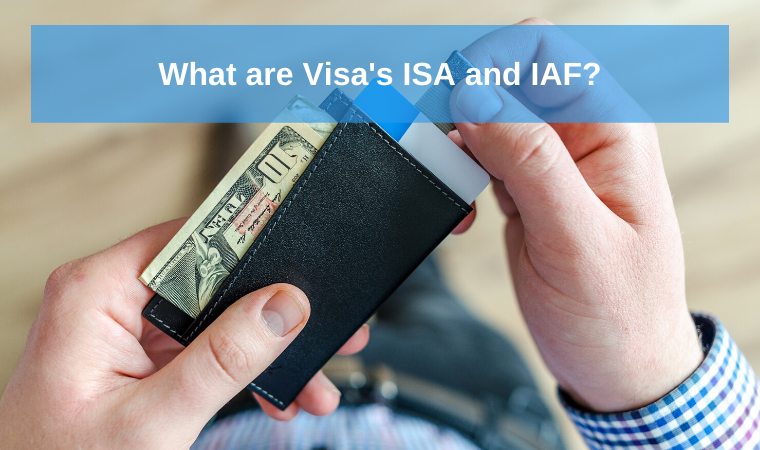What is the difference between a wire transfer and an ACH?

We are about to clarify the difference between wire transfers and ACH. How much are you going to be charged? What are the possible risks? From payment processing speed to transaction fees to hidden drawbacks, we lay out everything you need to know about ACH and wire transfers.
What is a wire transfer?
The wire transfer is a way to send funds directly from one bank account to another bank account. Usually, it only requires an account and a routing number. Wire transfers don’t have geographical limits as ACH payments do. That means you can send money to banks that are located outside the U.S.A. The sender pays a fee for money transfer; the recipient of the wire transfer does not need to pay for the receipt.
It takes one business day for wire-transfer to get processed. The huge benefit is that the money is available for spending on the very same day. International wires, though, usually take an extra day or two.
You might think that wire transfer is a magic pill for any merchant. It is not quite so. The main disadvantage of wire-transfers is high per-transactions fees. Banks tend to imply double-digit fees for wire-transfers. International wire transfers always cost a packet. Recalling wire-transfer is challenging as well. It requires additional fees in the form of bank investigations and service fees.
Credit card unions and banks usually charge between $10 to $35 to send a wire transfer within the United States, and international transfers cost more. As for today, for U.S. banks, the average wire transfer fee for a domestic incoming wire transfer is $15.50. A domestic outgoing wire transfer is $27.50. The average wire transfer fee for an international incoming wire transfer is $18.00, while an international outgoing wire transfer is $47.50. Receiving a wire transfer is free. However, some banks and credit unions charge small fees to receive funds by wire.
What are the benefits of wire transfer for business?
Let’s take a look at the main advantages of the ACH payment method for eCommerce businesses:
- Wire transfer is the fastest way to move funds across the world.
- You, as a merchant, get access to funds immediately with domestic transfers arriving same-day.
- Thanks to a personal identification number (PIN) code and callback confirmation, clients’ funds are safe and secure.
- You can obtain funds from international banks to your domestic bank within three business days.
- Wire transfers are popular among gambling and Forex merchants.
What is an ACH transfer?
The ACH transfer is an electronic, bank-to-bank transfer enabled by the Automated Clearing House network (ACH system). The ACH system comprises computers, working together, to process payments automatically. Neither payer or payee needs to handle the payments manually. ACH is a so-called “batch” processing system that processes millions of transactions at the end of the day.
Unlike expensive wire-transfers, ACH payments require a flat fee (e.g., 0.60 cents, regardless of the total sum). Thus, the larger your average check amount, the better the savings. Learn how to set up ACH payments on your website.
What are the benefits of ACH for business?
Let’s take a look at the main advantages of the ACH payment method for eCommerce businesses:
- ACP payment processing fees are cheaper than credit card processing fees. Not only is ACH less expensive than wires, but it is also more affordable than credit card processing.
- ACH payments can be disputed for three reasons only. That decreases the possibility of chargebacks. The high rate of chargebacks puts your business financial health at risk.
- ACH payments boost your conversion in the U.S. market. The majority of Americans are familiar with ACH payments. They consider such a payment method as secure and trustable. That boosts your chances for conversion among American consumers.
What is the difference between a wire transfer and an ACH?
Though both are bank-to-bank payment methods that are meant to transfer money electronically, ACH and wire transfer have some substantial differences.
First and foremost, wire transfers are available globally, while ACH transfers are only accessible in the U.S. Wire transfers also get processed faster than ACH transfers. However, they are more expensive. Both payment methods imply transferring funds from one account to another. The core difference is the parties involved. The wire transfers are done directly between a sending and receiving account. ACH transfers, in turn, require the automated clearing house (ACH) as an intermediary between two parties.
Typical uses of ACH and wire transfers
Because of the differences listed above, ACH transfers and wire transfers serve different needs. Wire transfers are the best choice when speed and certainty matter. In other respects, why pay the high fee to complete a wire? For example, when purchasing a real estate, antiques, e.g. Wire-transfers are beneficial for those merchants selling expensive products/services.
ACH payments are a perfect fit for small and regular payments. It’s also cost-effective to use this automated system. Though mostly used for paying bills and receiving a salary, ACH is a suitable payment method for subscription-based businesses.
ACH payments and wire transfers similarities:
- They are both electronic payment methods.
- They are both bank-to-bank payment methods.
ACH payments and wire transfers differences:
- ACH payments are available in the U.S only, while wire transfers are available globally.
- Wire transfer is a direct transfer between bank accounts, while ACH is processed through an automated clearinghouse.
- Wire transfer is processed within one business day, while ACH transfer requires five business days.
- ACH transfer usually costs less than a dollar, while wire transfer costs.
Summary
Both wire transfer and ACH are trusted and secure payment methods. To see which one fits your business best consider the following: target countries, average check amount, sales volumes, product/service type. The main benefit of ACH is an affordable per-transaction price, while wire transfers are known for its speed.


